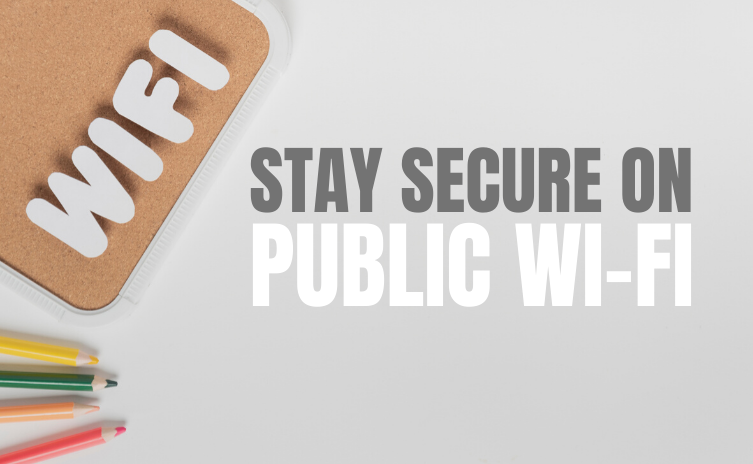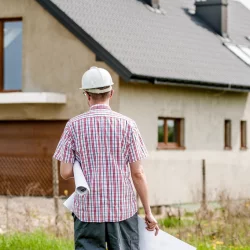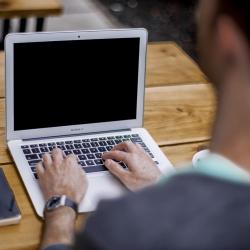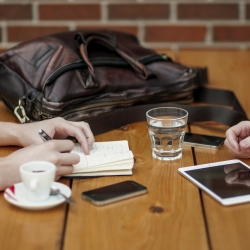Tips on How to Stay Secure While Connecting to Public WiFi Networks

Internet development and evolution are happening right now, as you read this article.
Besides the improvements performed to the hundreds of thousands of invisible networks existing on the internet, new articles, researches, and studies are pushed on the internet daily, a fact that will help you find more relevant answers to your question.
Hand in hand with the Internet's evolution, the number of cyberattacks and online criminal activities faces an alarming increase.
Internet users may face such online threats while connecting to public and unprotected Wi-Fi networks.
If you're curious about how to protect yourself while going online, stay with me, and learn how to upgrade your online routine.
Why do you need to protect yourself on public WiFi?
Can you imagine traveling without being able to access Google Maps? Or can you imagine working remote for a month or two without being able to chat with your family on Skype?
The Internet has an important role in our lives, as we tend to be online and connected to the World Wide Web every minute. Therefore, this behavior can put us in front of many online dangers, especially if we choose to connect to public Wi-Fi networks in pubs, hotels, or airports.
As a quarter of all the WiFi hotspots around the world use no encryption at all, your online security, anonymity, and privacy are put at risk.
Besides the mighty hackers who may steal your personal data, there are other types of threats that you can face like man-in-the-middle attacks, malware, or even end-up using a fake network.
Data encryption has a crucial impact on anything you do online, so you must keep in mind that on the internet, you need to better be safe than sorry.
How to stay safe while connecting to public Wi-Fi networks?
Even if our advice would be NOT to connect to public hotspots, we all know that this thing is impossible. So, here are a few things that you can do to avoid an unpleasant online situation:
Verify the network and Turn off file sharing.
Remember to doublecheck what network you're about to choose. For this, take a closer look at the network's name and, if possible, ask a person working in the place you're at if the hotspot is legitimate. Another thing that you should keep in mind is to turn off the file-sharing option on your device, as this is an easy task anyone can perform from the control panel.
Connect only to HTTPS websites.
HTTPS is HTTP's baby and is the secured version of this communication protocol. The S stands for Secure and is put there to let users know that this version of HTTP is encrypted. So, if you use HTTP instead of HTTPS, any skilled hacker may see anything you do online, while connected to an unsecured public WiFi network.
Use a VPN.
VPN technology is one of the most useful tools that provides you protection over public networks. In super-easy terms, we can say that a VPN is an improved version of a hide IP tool. The most important extra thing that a VPN provides is the military-grade encryption granted by the encryption standard used.
As the VPN connection is super easy to be enabled via a VPN app, you will just need to remember to open the app and click a connect button before connecting to the public WiFi network. However, keep in mind that the VPN connection may fail, so make sure to test your VPN to rest assured that everything works smoothly.
Use an Antivirus.
Just like a VPN, the antivirus is another application that does its job, making sure that you won't download and install any malicious document that may put your digital security at risk.
Enable your Firewall.
As its name suggests, the firewall stands like a protective wall between your device and the digital world, actively monitoring all the data that is sent and received. Even if the Firewall won't grant you complete protection, it does a great job of preventing unauthorized external access to your system. Therefore, as soon as the firewall detects malicious data packets, it will automatically block that specific data, keeping your connection secured.
Avoid connecting to your personal accounts.
Even if a public Wi-Fi network may seem secure, you always need to stay suspicious. Be a responsible internet user and do not access your personal bank accounts or other accounts that may require putting in sensitive personal information or passwords. Plus, remember that it's not recommended to do online shopping while using a public hotspot, as online shopping implies adding your bank account details or the login credentials. So, shop smart!
Verify what you're signing up for!
I hate all the discount pop-ups that show up while I visit different websites. Even if some of them may display generous deals or may invite you to sign-up for a really informative newsletter, I am always in a rush, and I find these marketing techniques disturbing.
If you're on the other side of the fence, make sure to double-check what you're up to sign-up or download from a website when using a public Wi-Fi network. But, if you did signed-up without checking and additional software installation is required, make sure to "abort mission" immediately.
Better stay safe than sorry!
Keep in mind that "there is nothing more frightful than ignorance in action".
With all the information existing on the web about how important is to surf securely, especially when using a public WiFi connection, getting in trouble is a choice.
Plus, with all the options you have to stay secure while going online, being a responsible internet user shouldn't be a challenge. And, keep in mind to never use the excuse that you're not a skilled technician. You need minimum tech knowledge to use and test a VPN connection or to enable/disable file sharing from your device.
Being ignorant of the web is a choice!
More to Read:
Previous Posts:








